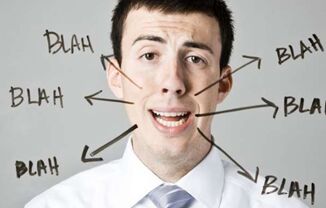怎样判断别人有没有对你撒谎
|
It's an unbelievable statistic, but we can be lied to up to 200 times a day. Deception expert Darren Stanton, known as The Human Lie Detector, tells us how to spot a fact from a fib. Is lying bad for your health?
"Yes," says Darren. As well as these gestures, there are physiological symptoms, like changes in breathing, heartbeat and temperature. Even a practised liar's body is likely to go into fight-or-flight mode, increasing adrenaline and building up stress. Regular stress causes high blood pressure, anxiety, excessive sweating and palpitations. "Think of it like digging one hole," he says. "When you've metaphorically got all the earth from that hole, where do you put it? So you dig another hole, and before you know it you've got 14 or 15 holes." Teenagers and young adults lie much more frequently than the older generation… Only a third of them can manage to go a whole day without fabricating something. By the time you get to 60, more than half of us can stay completely honest for a full day. How to tell if someone is not being honest with you... Skin tone "Blushing can be a sign, but not always, as some people go red just at the thought of being put under scrutiny. Look out for an absence of colour," says Darren. "Blood gets pumped to other parts of the body when under stress, so lips can noticeably change and become paler or look thinner." Posture Liars try to shield themselves. You'll notice someone fold their arms, flick their hair, or put their hands to their face to create a barrier. "Watch their physical distance too, they may end up at right angles to you or subconsciously move away," advises Darren. Anchor points Look out for a jiggling leg, tapping fingers, or just looking down at their feet. When someone lies, one of their feet may turn and point in another direction - it's their wish to escape from the situation. |









